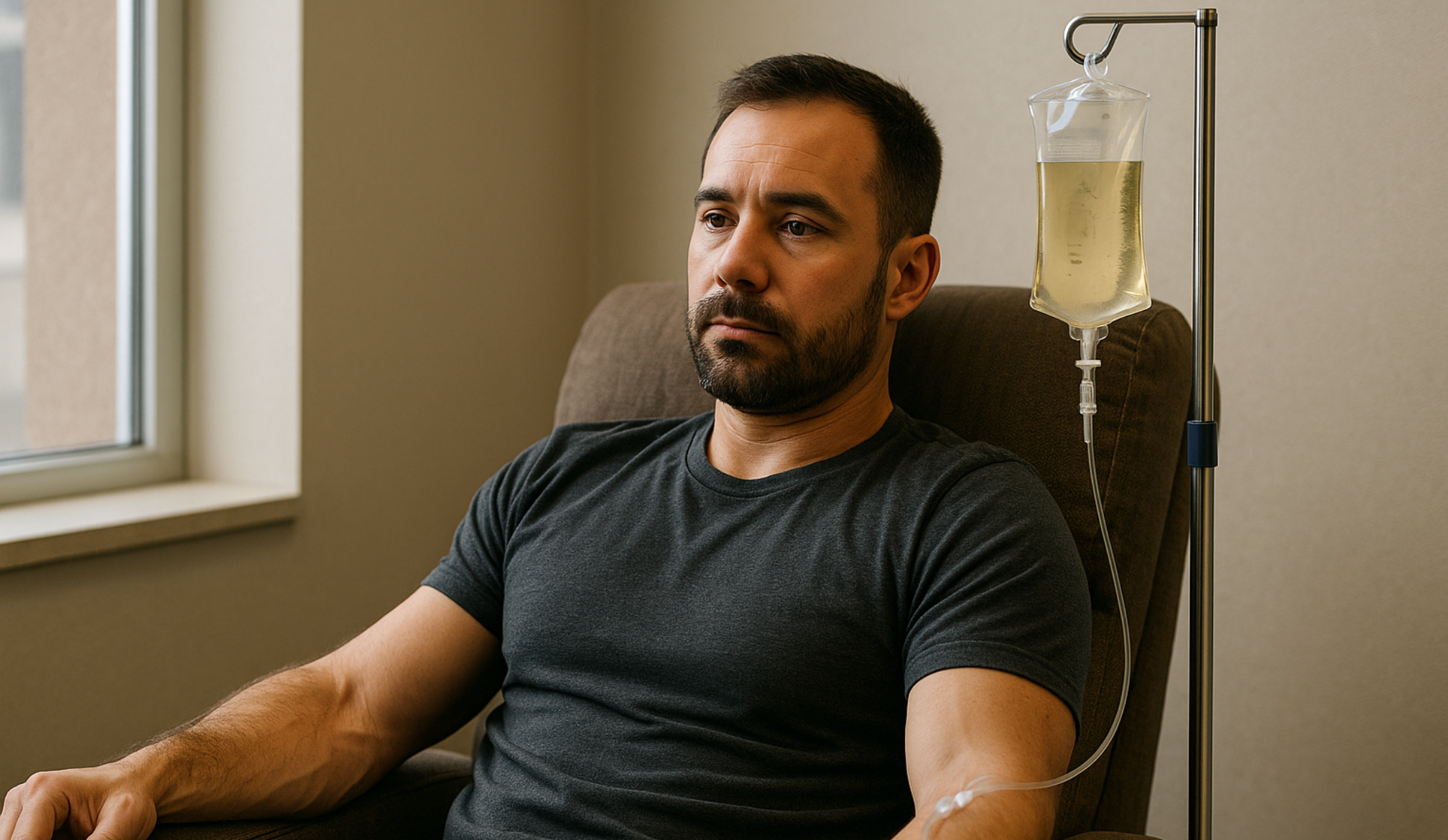How Mentoring Men is helping to tackle Australia’s male mental health crisis

Australian men are facing a mental health crisis that is costing the nation, not just in dollars, but in a breakdown of relationships, community connection, and quality of life. But new research and real-life stories show there is a way forward, and it starts with honest conversations and practical support.
A recent study commissioned by Mentoring Men, a free service connecting men with trained, local male mentors, surveyed 2,000 men aged 35 to 50 in NSW, VIC, and the ACT. The findings paint a stark picture: nearly half (47%) of respondents reported experiencing general stress and anxiety, while 26% struggle with relationship-related stress. Issues related to addictive behaviours and parenting stress each affected 24% of respondents. Challenges also extend to emotional regulation (40%) and maintaining relationships (36%), with these struggles spilling over into the workplace. One in four men have taken time off work due to their mental health, and 31% admit to being unproductive on the job. The combined impact is estimated to cost the nation $3.76 billion every year.[1]
Despite 95% of men acknowledging that some form of support would help them, 42% admitted to ‘pushing through on their own’, often because they simply don’t know where to turn. This turns the outdated belief that ‘men don’t want to talk’ on its head ; the reality is men do want support, but aren’t sure where to go.
Lived experience: breaking the silence
One man’s journey with Mentoring Men began after years of silent struggle. We’re keeping him anonymous to protect his privacy. “I’m not a stranger to personal challenges or mental health, having experienced a fair bit of depression,” he says. “But for most of my life, I suffered in silence. I’d used psychologists and psychiatrists, which are good for deep stuff and meds, but I still felt pretty alone.”
After losing father at seventeen and moving countries, he also found himself without older male role models. “I’d never really had any men of that age to lean on for support or guidance. I heard about Mentoring Men through a friend, and at the time I was trying to make a career change and was struggling to make any progress. I realised I needed some help or guidance. So I thought, f*** it. Why not give it a go?”
The impact of joining Mentoring Men was immediate and profound. “With my mentor, I felt like I could be pretty open without any judgement. Having someone to confide in, and knowing they would be not just a one-off, helped me build confidence in my other relationships - girlfriends, friends, even new work contacts, especially as I pursued a career change.”
He highlights the unique value of relatable guidance, “Everybody’s life experience is different, but I think it’s important for a mentor to have gone through some personal challenges and have a big heart and compassion, which is what I saw in my mentor. You just know you can trust them, that you won’t be judged.”
He has since become a mentor himself: “There’s a whole heap of blokes out there struggling and keeping things to themselves. But as the research has shown, two-thirds are open to speaking to someone they trust. I just realised how powerful mentoring was for me. I love helping other people work through their problems and I think what we do is vital to the long-term tackling of this silent epidemic.”
A nationwide solution for men
Mentoring Men CEO Filipe Gama e Silva believes that, “the issues revealed by the research are not just a problem for Aussie men. Healthy men lead to healthier families, workplaces, communities, society and a more productive wider economy.”
Filipe adds, “this research highlights a critical need for change in how we, as a society, approach men's mental health. We know that men are open to seeking support but don’t know where to turn, so they are often pushing through on their own. It is a crisis that deserves national attention and government investment.”
Mentoring Men’s free, male-to-male model, endorsed by the National Men’s Health Strategy and Suicide Prevention Australia, offers a proven, practical pathway to better mental health.
For those ready to take the first step, the support is there, judgement-free. If you, or someone you know, could benefit from mentoring, or if you would be open to donating to help a man in need visit mentoringmen.org.au.
[1] 5,170,495 men were aged 35-50-years-old in Australia in 2021 (informed decisions). 25% of men surveyed admitted to absenteeism because of the struggles they are experiencing; applying this to the total number of 35-50 year old Australian men: 1,292,623.75 men. Annual cost of absenteeism per employee in Australia is $825 (Safework). Total men aged 35-50 admitting to absenteeism x annual cost of absenteeism per employee in Australia = $1,066,412,093.75. 31% of men surveyed admitted to presenteeism because of the struggles they are experiencing; applying this to the total number of 35-50 year old Australian men: 1,602,853.45. Annual cost of presenteeism per employee in Australia is $1,680 (Safework). Total men aged 35-50 admitting to presenteeism x annual cost of presenteeism per employee in Australia = $2,692,793,796.00. Total annual cost of absenteeism and presenteeism caused by Australian men aged 35-50 experiencing struggles is $3,759,205,889.75 ($3.76 billion).





